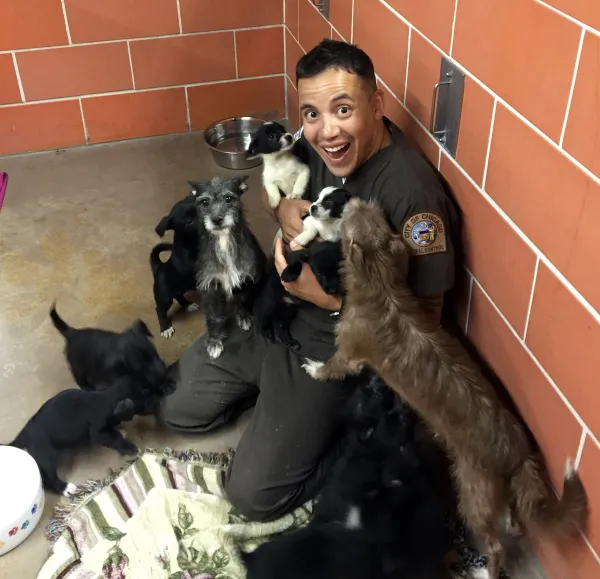City of Chicago Bulletin: July 29, 2025

City of Chicago facing $1 billion gap as budget deadline looms
As Chicago heads into its budget season, the overall picture is troubling: the city is facing a $1 billion budget shortfall coupled with a sharp decline in federal grant funding.
Last fall, AFSCME raised concerns that, unless new sources of revenue were found, and the property tax levy was modestly increased, this exact situation would come to pass. Instead of identifying sustainable sources of revenue and efficiencies, the city closed its deficit by eliminating vacancies and using other financial maneuvers. Now, with just a few months to go before the introduction of the FY26 budget, political leaders are combing through the city’s finances to try to avoid cuts to critical public services.
AFSCME’s legislative team is working with the Johnson administration and City Council members to identify potential savings and additional revenue to fill the budget gap. AFSCME has worked with allies on the City Council to schedule multiple subject matter hearings on topics such as the city’s oversight of third-party contractors and delegate agencies; both potential sources of savings.
Unfortunately, some elected officials have already begun talking about the need to cut city services and lay off city employees.
While a property tax increase will likely be needed as part of any revenue package, thus far Mayor Johnson has ruled it out, instead promising to raise revenue in other ways not yet identified. Without a modest property tax increase, it is likely that the administration will face further pressure to cut services as part of any budget deal.
The next step in the budget process will come in August when the city is expected to publish its budget forecast, which will provide greater clarity about the size of the challenge ahead.
Closing Chicago’s 2026 budget gap will be an arduous and difficult task. And it will likely require intensive grassroots pressure to block attempts to balance the budget on the backs of city employees.
Multiple Chicago departments and programs at risk from federal funding cuts
Chicago also faces a potentially major loss in federal grant funding – with many COVID-era grants set to expire and steep cuts to federal agencies included in the Trump administration’s FY 26 budget.
Federal grants provide the lion’s share of funding for many vital services and programs administered by city employees. The Chicago Department of Public Health (CDPH) is especially dependent on this funding; Over 82% of the city’s public health funding is supported by federal dollars.
According to CDPH, this funding supports over 200 employees working on HIV/AIDS services, opioid response, disease outbreak preparedness, and other important programs. Other federal funding from the American Rescue Plan Act (ARPA), signed into law by President Biden, is set to expire next year as well. ARPA provides the majority of funding for the Crisis Assistance Response and Engagement (CARE) teams—and the city currently has no plan for an alternative funding source.
Our union is committed to preventing the loss of union members’ jobs and ensuring that the city is able to continue providing the services Chicago residents depend on every day.
The fight to halt subcontracting
In April, Arbitrator Margo R. Newman, ruling on a grievance filed by our union, found that the City of Chicago had violated the AFSCME contract by its use of a subcontractor to perform bargaining unit work in the Chicago Department of Public Health.
Yet even in the wake of the arbitrator’s award, the city has continued to use private contractors, often without following the contracting out provisions in the AFSCME collective bargaining agreement. Two recent requests for proposals (RFPs) include work to deliver services through the Special Supplemental Nutrition Program for Women, Infants and Children as well as work to expand the city’s testing capacity for communicable diseases in congregate settings. Both of these solicitations pertain to work that is traditionally performed by city employees.
In other words, the city plans to pay $1.6 million and $1.9 million per year, respectively, to private contractors to do this work rather than hire more staff so that the work can remain in-house.
Upon learning of these RFPs, AFSCME immediately filed another grievance. The union also plans to include instances of contracting out in other departments that have subsequently come to light.
This is work that can and should be performed by city employees. Council 31 remains on the lookout for further violations of the arbitrator’s award and will always fight to keep our work from being contracted out.
AFSCME presses for safety measures for CPL employees
Since the pandemic, Chicago Public Library workers have faced an increasing number of violent and abusive incidents from patrons. CPL management has refused to take responsibility, claiming their hands are tied and blaming other city departments.
AFSCME took the problem into our own hands—contacting and setting up meetings with the Department of Fleet & Facility Management (2FM) and the Mayor’s Office to get status updates on camera and panic button installation and learn about the city’s processes for making fixes at branches. AFSCME Local 1215, which represents CPL employees, also pressed 2FM on how they determine building closures when heating or cooling systems are broken.
While CPL management had long claimed that there are no set parameters for when libraries must close as a result of broken heating or cooling systems, 2FM provided the local with a full operating procedure that shows the exact opposite. This operating procedure is the same for other city buildings, too—not just libraries.
“This information was one of many things we learned about. The meeting was important in helping us gauge what steps we need to take to convince management to take action on something,” said Local 1215 Health and Safety Chair Corina Pedraza.
Armed with this new information, Local 1215 plans to press for quicker responses on unsafe situations and conditions.
Hundreds of pets available to adopt from Chicago Animal Care and Control

Members of AFSCME Local 2912 are responsible for the care of hundreds of dogs, cats and other animals regularly brought to Chicago Animal Care and Control (CACC). At the facility, employees help locate lost pets, facilitate adoptions and provide appropriate medical care for sick and injured animals.
That work is taxing and short staffing is a chronic problem. Although intake levels are the highest in years, only a handful of CACC workers are left to handle adoptions, as well as all necessary medical care for the 550 animals housed at the facility. The animals feel the short staffing, too: with so few staff, the animals get less interaction.
That’s one of the reasons why workers at CACC are encouraging their fellow AFSCME members to stop by the facility to adopt a pet in need of a loving family. All animals at CACC up for adoption are spayed or neutered, up to date on vaccines, microchipped and registered with the city. The facility is located at 2741 S. Western Ave., Chicago 60608, and is open for adoption every day from 12 p.m.-7 p.m.
